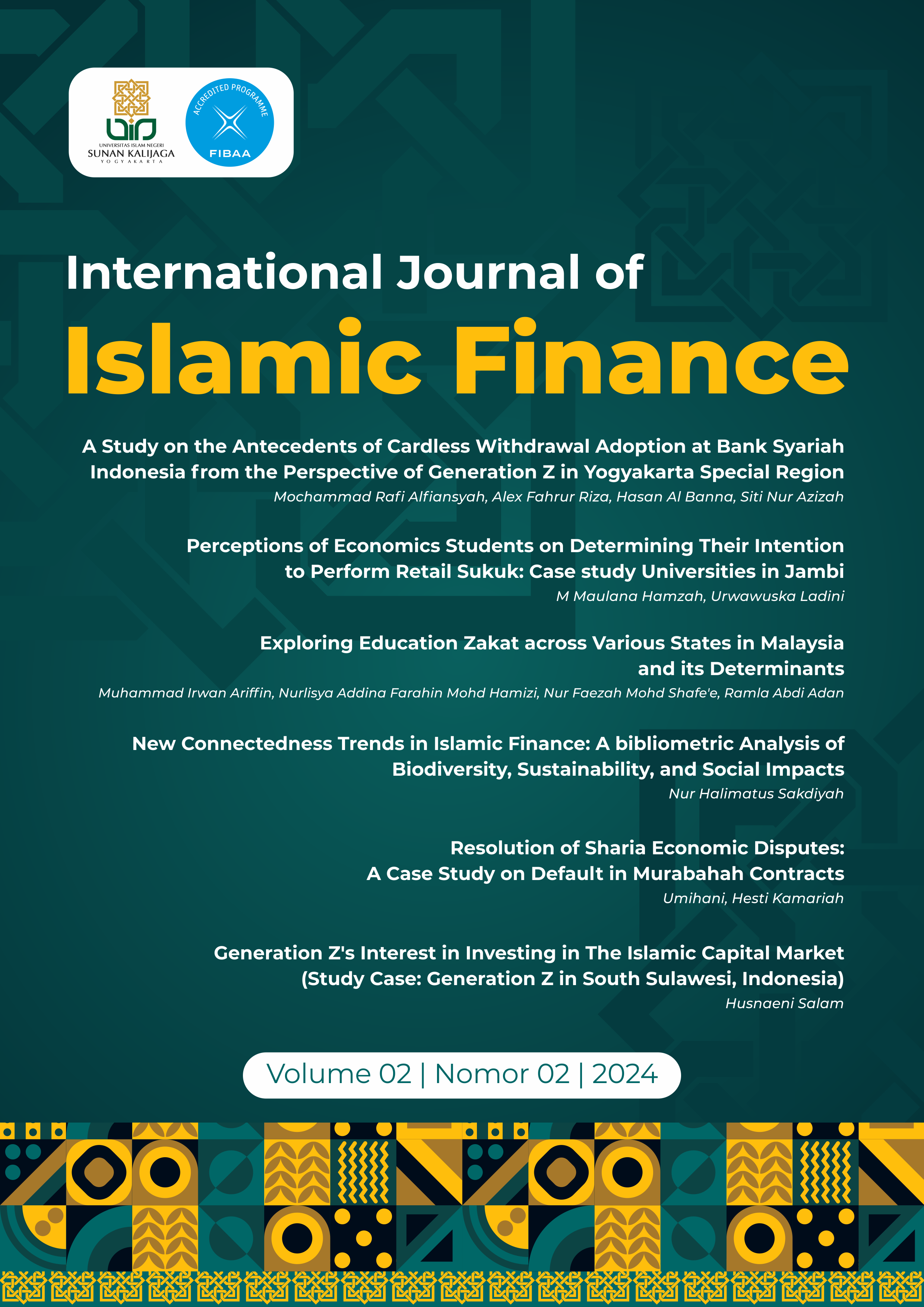Resolution of Sharia Economic Disputes: A Case Study on Default in Murabahah Contracts
DOI:
https://doi.org/10.14421/ijif.v2i2.2322Keywords:
Default, Murabahah bil Wakalah Contract, Judge's Decision.Abstract
Background: The increasing significance of sharia economics in Indonesia necessitates a thorough understanding of the judicial processes involved in resolving related disputes. This paper focuses on a specific case, sharia economic dispute No. 398/Pdt.G/2021/PA.Btl, to explore the judge's considerations and the legal frameworks at play.
Objectives: The primary objective of this research is to analyze the judge’s considerations in the resolution of the mentioned sharia economic dispute. It aims to assess whether these considerations align with existing legal frameworks and principles, particularly in relation to the murabahah contract.
Novelty: This study contributes to the existing body of literature by providing an empirical normative analysis of a real case, highlighting discrepancies between judicial considerations and legal sources. It underscores the need for consistency in applying legal principles within sharia economic disputes, thereby filling a gap in current academic discussions.
Research Methodology: The research employs a qualitative approach, utilizing empirical normative research techniques. Primary data is gathered from relevant dispute decisions, while secondary data consists of legal texts and scholarly readings. The analysis follows a deductive method, employing Gustav Radbruch’s theory of legal certainty to evaluate the findings.
Findings: The study reveals that the dispute was initiated as an ordinary lawsuit but could have been resolved through a simpler process as outlined in PERMA No. 4 of 2019. Furthermore, the judge's considerations did not adequately reflect the specifics of the murabahah contract. The analysis indicates a failure to adhere to the hierarchy of positive legal sources, including a lack of reference to the KHES, resulting in a violation of the principle of legal certainty.
Implication: The findings suggest a critical need for judges in sharia economic disputes to align their considerations with established legal frameworks to uphold legal certainty. This study advocates for enhanced judicial training and clearer guidelines to ensure consistent application of laws in sharia finance, ultimately contributing to the stability and integrity of sharia economic practices in Indonesia.





